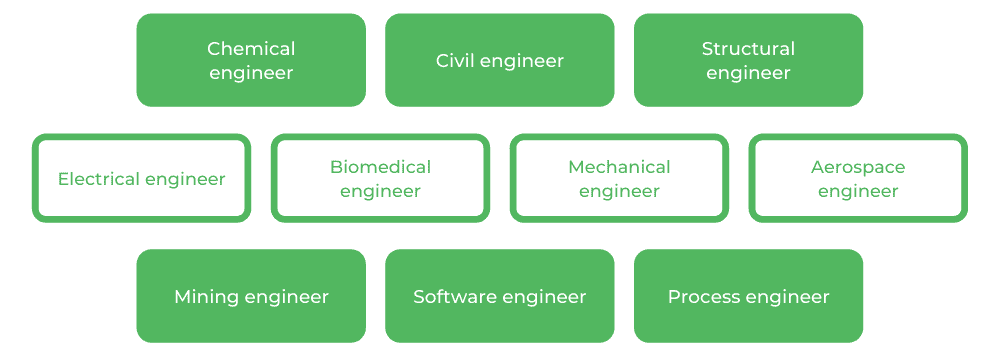In our last article, you learnt all the official information on a Bachelor of Engineering (Honours) at UQ, with a particular focus on Electrical Engineering!
Now, we are going to take a deep dive and find out more about this degree from Josephine, a fifth year Electrical Engineering student! She is going to walk us through exactly what her degree is like, including what she loves, and what isn’t so fab.
Keep reading if you want to learn exactly why you should consider a Bachelor of Engineering at UQ!
Why should you study an Engineering degree at UQ?
Top 3 Pros of an Engineering Degree
Top 3 Cons of an Engineering Degree
Mistakes You Shouldn’t Make
Things to Know Before Starting UQ Engineering
What Makes this Degree Different
Motivations for Studying UQ Engineering
Potential Career Paths
Why should you study an Engineering degree at UQ?
“The [St Lucia] campus is really nice, it’s beautiful,” Josephine said. Though this is minor, your study location can actually make a huge difference to motivation and learning!
What about on an academic level?
“Secondly, we have a lot of partnerships with industry. We are the only uni who has a partnership with Boeing,” Josephine shared.
As you can see, at UQ you can expect a great overall study experience, where partnerships and extracurricular activities are prioritised.
Top 3 Pros of an Engineering degree
#1: It’s a practical degree
Josephine explained that Engineering at UQ strikes a great balance between theory and and the practical aspects. You will become familiar with the topics you need to learn, before trialling and implementing them. This is an effective way of learning complex topics, and gives you real experience.
“We have a lot of hands-on activities… a lot of labs and resources available,” Josephine said.
#2: Industry connections
Getting to know potential employers or referees can be a really vital part of standing out in university. Having opportunities for connection handed to you is a massive pro.
“We have a lot of mentoring straight from the industry itself with company itself, or even just within our societies… The engineering societies have really good connections with certain companies and they often have careers fairs, mentoring nights and drinks nights so you get the connection you want.
“You build the connection before you actually look for jobs. [You] also talk to employers and learn what they look for in students, what their ideal candidate is,” she highlighted.
Josephine said that the Engineering Undergrad Society (EUS) hosts a particularly good careers fair for all different Engineering disciplines.
#3: Built in Honours
Because Honours is automatic in this course, you don’t have to get a certain mark to finish your final year of study. This really reduces stress for students! It also makes graduates more employable after uni.
“[The course] used to not come with Honours, but then they changed it so everyone gets Honours when you graduate,” said Josephine.
The structure of Honours is slightly different according to your discipline. Some involve writing a thesis, and others don’t. “It depends on the discipline, but Electrical has a thesis,” she explained.
Top 3 Cons of an Engineering degree
#1: Some equipment needs upgrading
UQ is currently in the process of upgrading their labs to give students high-end technology. However, some of the equipment in other labs does not work like it used to.
Josephine said, “It’s just for particular labs.. Let’s say oscilloscopes… [the upgraded labs] have working oscilloscopes, but for some older labs that they haven’t started upgrading, some of the equipment actually doesn’t work as well.”
She explained that this can be frustrating, because students sometimes think they have done something inaccurately, when it was really just the equipment not working as it should.
#2: This degree is assessment heavy
“It depends on the course,” Josephine said. “Sometimes it’s three assessments throughout — one exam, one final and something in the tutorial. But if it’s not that kind of easy structure, then it’s going to be like 5% [of marks] in tutorials each week, and then 2% for class attendance and it’s all just a lot of stuff.”
Josephine explained that despite this being hard, many assessments can make for a good academic outcome. It means that students have to plan their work week and be efficient, so they are always on top of content. This will, ultimately, see you get more out of uni.
“Regardless of what the structure is, you still have a lot to go through… You’ve got to keep on top of it,” she said.
#3: That’s all!
Josephine really enjoys her degree and didn’t have a third con! However, it’s important to remember that your study experience may be different. You may find other things challenging.
Any regrets?
“Yes, definitely not jumping out of my comfort zone in my first year, because I used to be really, really quiet. I came from an all girls high school, I hadn’t been in a co-ed school my entire life.
“Coming from a girls school into Engineering was such a big difference in gender ratio… You get nervous, and you’re not sure how to make new friends apart from female friends,” Josephine shared.
Josephine’s regret really speaks to the gender ratio concerns that some girls have when enrolling in Engineering. However, you shouldn’t let it deter you! UQ has lots of events specifically for women.
“[I wish I] joined more peer structured activities, like society activities where you get to know people across the entire cohort,” she said.
What do you wish you had known before starting UQ Engineering?
“I wish I’d known how to plan, and better time management. When it comes to uni, you sometimes just panic a lot. It’s probably [going to happen] throughout semester as well, when you have a lot of assessments and you can lose track of what you should be on top of.
“At the same time, uni isn’t always about studying… It’s not for you to just get good grades and have a good career path. It’s for building your communication and interpersonal skills, and your own network as well. Uni is such a diverse place… so I would say study hard, it’s important, but play hard as well,” Josephine highlighted.
What makes this degree different from the ones offered at other universities?
“We have really well-structured courses, and teaching and learning structure. They set you up with theory and then with prac. I know some unis are more focussed on theory and some are more focussed on practical, but their students struggle to do the practical because they don’t learn enough.
“[At UQ], they let you learn enough theory and then practise on that theory, then you apply it. I feel like if you miss one of the three, it’s going to make it hard to actually do things in such a practical degree,” shared Josephine.
By having a great structure like Josephine has detailed, UQ also ensures that students are highly employable. You will leave university knowing exactly what Engineering is about and how you can excel in the real world.
What inspired you to choose UQ Engineering?
“I want to do something that’s technical but can help people or improve their lives in a social way… that’s why I chose Electrical, because it’s a discipline where things will be used on a daily basis. I go from your phone and electricity to home to even renewables and power stations… I want to actually make an impact on people,” Josephine said.
She also explains how double degrees can really enhance your experience as an engineer.
“With my Arts degree, my Psychology side, I want to understand how people behave and interact and how I could implement that into Engineering. Engineering is a degree which requires teamwork. You can’t be a solo Engineer and do everything by yourself.”
What are the possible career paths?
As we have discussed before, there are many diverse career paths you can take on after an Engineering degree. Some of them are:
- Chemical engineer
- Civil engineer
- Structural engineer
- Electrical engineer
- Biomedical engineer
- Mechanical engineer
- Aerospace engineer
- Mining engineer
- Software engineer
- Process engineer
Learn about other career paths you can follow with an Engineering degree here!
Lucinda Garbutt-Young hopes to one day be writing for a big-shot newspaper… or maybe just for a friendly magazine in the arts sector. Right now, she is enjoying studying a Bachelor of Public Communication (Public Relations and Journalism) at UTS while she writes on the side. She also loves making coffees for people in her job as a barista, and loves nothing more than a sun shower.





